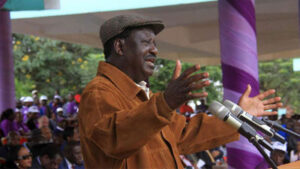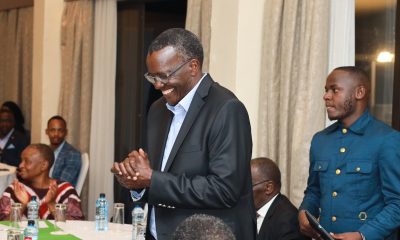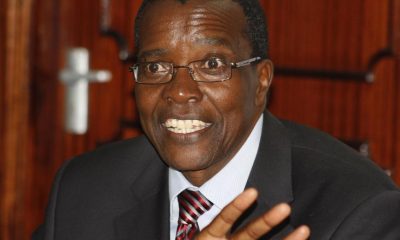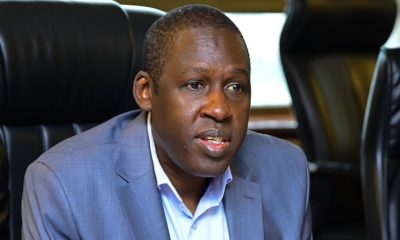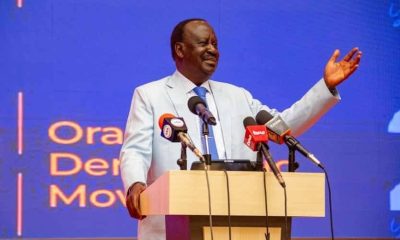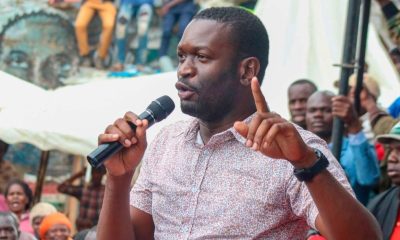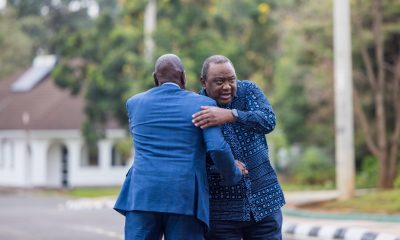Politics
Maraga Channels His Own ‘People Driven’ Dialogue, Shuns Raila’s Conclave
“If there’s going to be any dialogue, it should be people-driven,” Maraga declared, emphasizing that such conversations must emerge from genuine public demand rather than government orchestration.
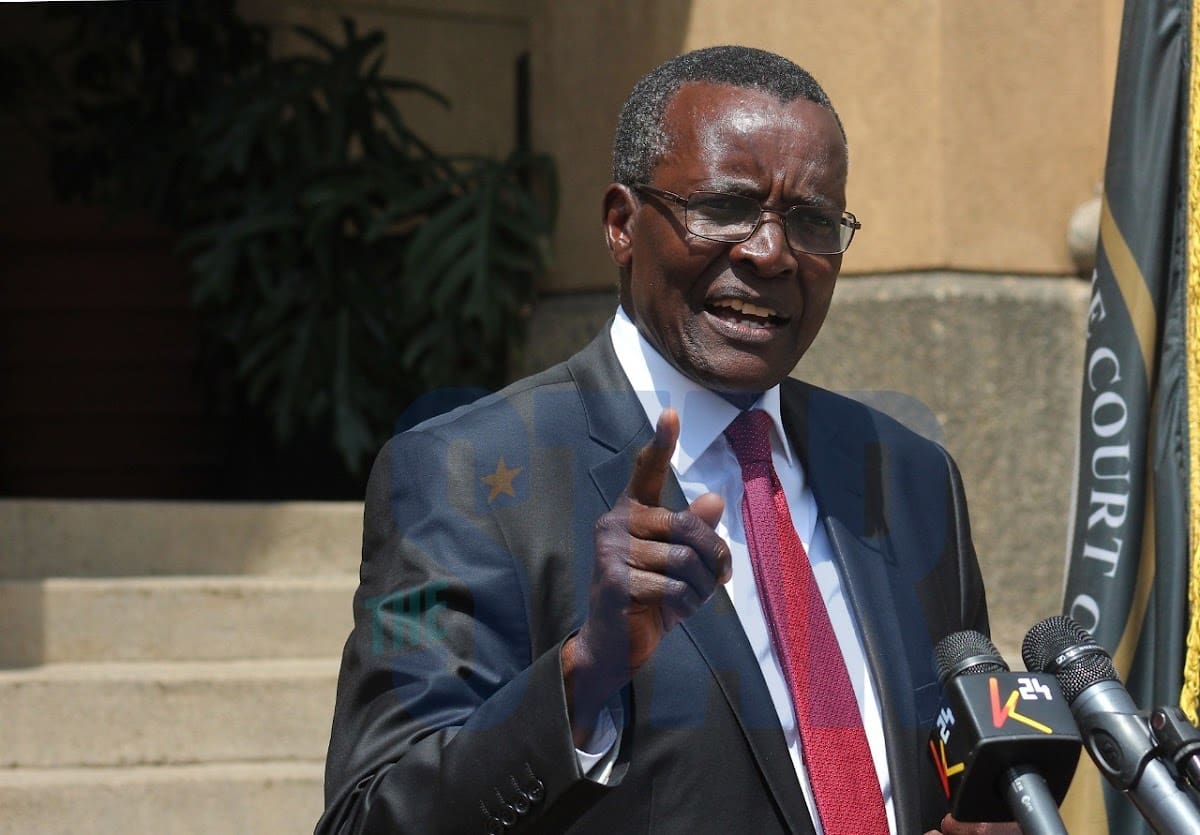
Former Chief Justice dismisses Raila’s conclave proposal as government-initiated scheme that won’t address root causes
Former Chief Justice David Maraga has drawn a clear line in the sand regarding national dialogue, endorsing grassroots conversations while categorically rejecting Raila Odinga’s proposed Inter-Generational National Conclave as a government ploy that will only create positions for “selfish leaders.”
Speaking on Tuesday, the 2027 presidential aspirant positioned himself as a champion of authentic, people-driven dialogue while dismissing the former Prime Minister’s initiative as fundamentally flawed in its approach and intent.
“If there’s going to be any dialogue, it should be people-driven,” Maraga declared, emphasizing that such conversations must emerge from genuine public demand rather than government orchestration.
“People are expressing concerns and saying we should have dialogue. What can only help is a people-driven dialogue that will involve the youths who have suffered most.”
The former Chief Justice’s remarks represent a significant departure from Raila’s vision of an inclusive national conclave designed to address Gen Z concerns and broader national issues.
While both leaders acknowledge the need for dialogue, their proposed mechanisms couldn’t be more different.
Maraga’s critique of Raila’s conclave was particularly sharp, describing it as a “government-initiated approach that will not help solve anything.” He argued that such forums historically serve to “get positions for people and will not address the root cause of the problems.”
“So, to say that you are going to discuss the affairs of the youth by the government now setting the agenda, that’s a joke,” Maraga stated, his words carrying the weight of someone who has witnessed previous dialogue initiatives fail to deliver meaningful change.
The former Chief Justice’s skepticism is rooted in historical precedent. He pointed to the Kofi Annan-led mediation of 2008 following post-election violence, noting that despite producing various recommendations, “only very few were complied with.” This historical context informs his belief that top-down dialogue initiatives are inherently limited in their effectiveness.
Instead, Maraga is positioning himself as a facilitator of authentic grassroots dialogue. He revealed that various groups have already approached him about participating in such conversations, and he’s committed to engaging “not as a presidential candidate but as a leader and former Chief Justice.”
“There are groups already thinking about that, I have myself requested and talked to some people we come together and think about what we should do in my capacity as a leader and former Chief Justice,” he explained, framing his involvement as a patriotic duty rather than political positioning.
This strategic positioning comes at a crucial moment in Kenya’s political landscape. The country has been rocked by youth-led protests, and both established and emerging leaders are scrambling to position themselves as authentic voices for change. Maraga’s rejection of Raila’s approach while proposing his own alternative represents a calculated move to differentiate himself from the political establishment.
The former Chief Justice’s emphasis on youth involvement is particularly significant given the generational tensions that have defined recent political discourse. He insisted that any meaningful dialogue “must also involve young people who are the most affected by recent developments in the country.”
Raila’s proposed conclave, announced following the chaos of Saba Saba Day, was designed to be comprehensive, addressing transparency, accountability, corruption, youth unemployment, and police reforms. The former Prime Minister envisioned a forum with “clear terms of reference” populated by “serious and sober minds of the nation,” with outcomes potentially subject to a referendum.
However, Maraga’s criticism suggests that the former Prime Minister’s approach, despite its comprehensive scope, suffers from a fundamental flaw: its association with government machinery. In the current political climate, where trust in institutions is at historic lows, this association may indeed be problematic.
The former Chief Justice described his proposed dialogue as a “stopgap measure,” suggesting a more immediate, responsive approach to addressing national concerns. This framing positions his initiative as more agile and responsive than Raila’s more structured conclave approach.
The tension between these two approaches reflects broader questions about political legitimacy and authentic representation in contemporary Kenya. While Raila’s conclave offers institutional weight and comprehensive scope, Maraga’s people-driven dialogue promises authenticity and grassroots legitimacy.
As Kenya navigates this period of political uncertainty, the competition between different models of national dialogue reveals competing visions for how the country should address its challenges. Maraga’s rejection of Raila’s approach while championing his own alternative suggests that the conversation about Kenya’s future will be as much about process as it is about outcomes.
The former Chief Justice’s positioning also highlights the complex dynamics within Kenya’s political landscape, where traditional alliances are being tested and new forms of political engagement are emerging. His criticism of Raila’s conclave as government-initiated reflects broader skepticism about the efficacy of formal political processes in addressing genuine grievances.
Whether Maraga’s people-driven approach will prove more effective than Raila’s structured conclave remains to be seen. What is clear is that both leaders recognize the urgent need for national dialogue, even as they disagree fundamentally on how such conversations should be structured and who should lead them.
Kenya Insights allows guest blogging, if you want to be published on Kenya’s most authoritative and accurate blog, have an expose, news TIPS, story angles, human interest stories, drop us an email on [email protected] or via Telegram
-

 News2 weeks ago
News2 weeks agoTHE FIRM IN THE DOCK: How Kaplan and Stratton Became the Most Scrutinised Law Firm in Kenya
-

 Grapevine1 week ago
Grapevine1 week agoA UN Director Based in Nairobi Was Deep in an Intimate Friendship With Epstein — He Even Sent Her a Sex Toy
-

 Politics2 weeks ago
Politics2 weeks agoPresident Ruto and Uhuru Reportedly Gets In A Heated Argument In A Closed-Door Meeting With Ethiopian PM Abiy Ahmed
-

 Investigations1 week ago
Investigations1 week agoHow Mexico Drug Lord’s Girlfriend Gave Him Away
-

 Business2 weeks ago
Business2 weeks agoSafaricom Faces Avalanche of Lawsuits Over Data Privacy as Acquitted Student Demands Sh200mn Compensation in 48 Hours
-
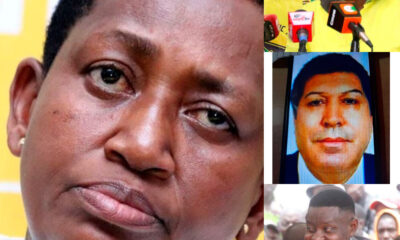
 Investigations1 week ago
Investigations1 week agoHow Close Ruto Allies Make Billions From Affordable Housing Deals
-

 Entertainment1 week ago
Entertainment1 week agoKRA Comes for Kenyan Prince After He Casually Counted Millions on Camera
-

 Politics2 weeks ago
Politics2 weeks agoI Personally Paid For Your Ticket To Visit Raila in India, Oketch Salah Silences Ruth Odinga After Claiming She Barely Knew Him

